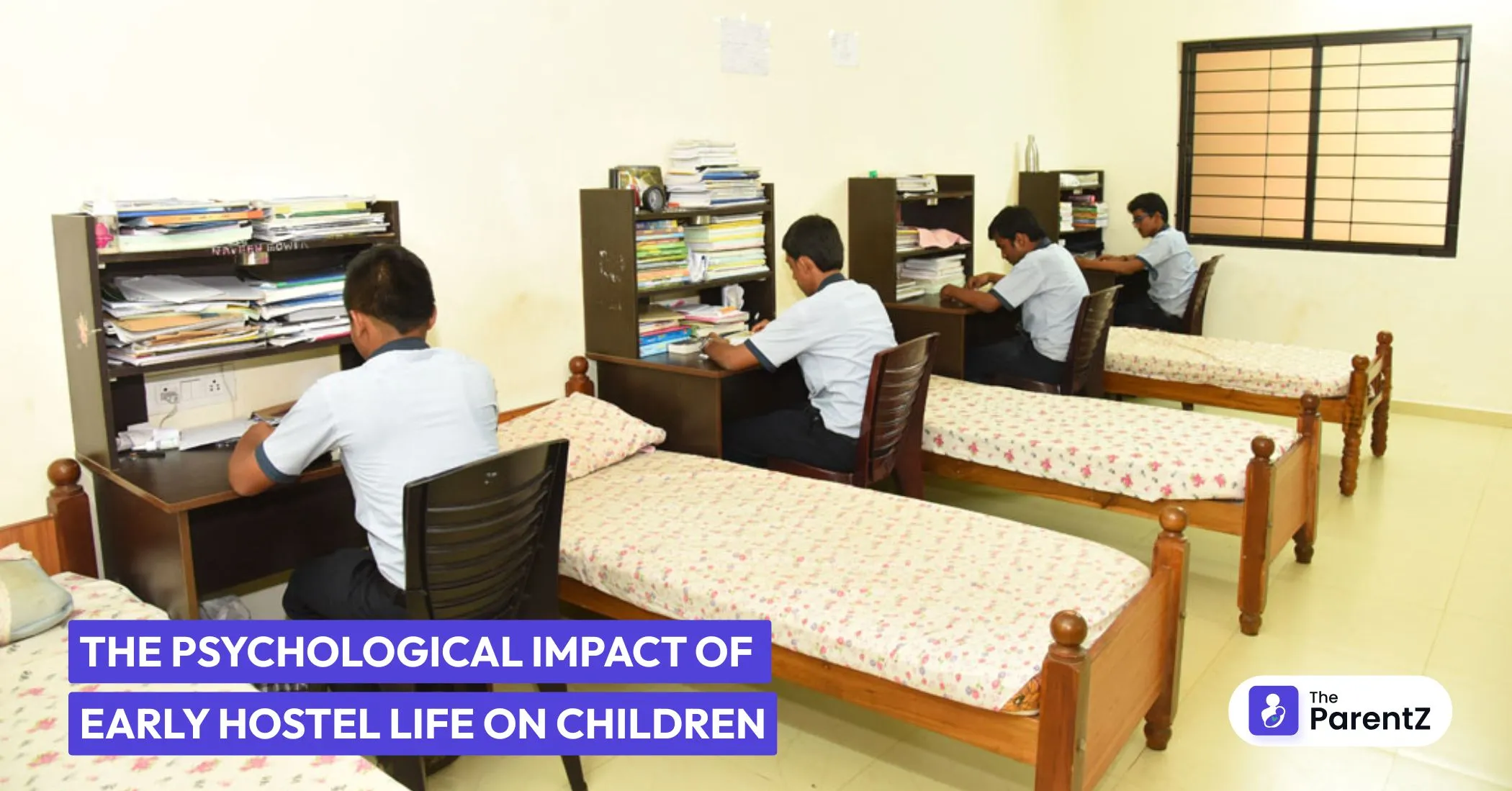Sending a child to a hostel at a young age is often a decision driven by necessity, be it for better education, career opportunities, or geographical constraints. While hostels can foster independence, discipline, and self-management, they also bring a set of emotional and psychological challenges that can significantly shape a child’s development.
Understanding the psychological impact of early hostel life is crucial for parents, caregivers, and educators to ensure that children adapt healthily and do not internalize distress that could affect their long-term well-being.
1. Separation from Primary Caregivers
One of the most significant emotional stressors for young children in hostels is the sudden separation from their primary caregivers—usually parents or grandparents. Children between the ages of 6 and 14 are in a critical stage of emotional and cognitive development. During this time, the presence of secure attachment figures helps them feel safe and understood.
Separation during these formative years may lead to:
- Increased anxiety
- Night-time fears or sleep disturbances
- Clinginess during family visits
- Withdrawal or reluctance to form new bonds
In some cases, it may also contribute to Separation Anxiety Disorder, where the fear of losing contact with loved ones becomes intense and persistent.
2. Emotional Loneliness and Social Adjustment
Young children may initially struggle to build new emotional connections in a hostel environment. Unlike the home, where love and attention are abundant and unconditional, hostel life can feel emotionally sterile and transactional.
This lack of emotional warmth may lead to:
- Feelings of loneliness or abandonment
- Low self-worth if the child interprets separation as a form of rejection
- Difficulty trusting others, especially in strict or impersonal hostel settings
Children who are naturally shy or sensitive may find it even harder to make friends or approach hostel staff for emotional support, further deepening their sense of isolation.
3. Academic Pressure and Performance Anxiety
Many hostels are linked with competitive schools or coaching institutes. While academic excellence is a common goal, the pressure to perform, when combined with emotional upheaval, can be overwhelming for a child.
The child may exhibit:
- Performance anxiety, especially during exams or tests
- Fear of failure, driven by perceived expectations from parents or teachers
- Burnout or loss of motivation
- Psychosomatic symptoms like stomach pain, headaches, or fatigue due to stress
The absence of a comforting home environment to decompress can make it harder for children to bounce back from academic setbacks.
4. Behavioural Changes and Emotional Suppression
To cope with the emotional intensity of hostel life, children often develop behavioural adaptations. Some may become emotionally numb or suppress feelings, while others may display aggression, rule-breaking, or defiance.
Possible behavioural signs include:
- Frequent irritability or mood swings
- Disobedience or rebellion as a form of regaining control
- Over-dependence on peers, leading to peer pressure or risky behavior
- Excessive withdrawal or avoidance of social interaction
These responses are not necessarily signs of indiscipline but often indicate deeper unmet emotional needs.
5. Disruption of Attachment and Emotional Development
Consistent emotional support in early childhood is essential for developing secure attachment styles. Hostel life, especially when emotionally unsupported, can interfere with the formation of healthy relationships later in life.
Children may develop:
- Avoidant attachment: reluctance to trust or rely on others
- Anxious attachment: fear of abandonment or constant need for reassurance
- Difficulty with emotional regulation and self-soothing
This emotional disconnection may continue into adolescence and adulthood, affecting friendships, romantic relationships, and professional environments.
6. Resilience vs. Emotional Strain: It’s Not One or the Other
It’s important to understand that not all outcomes of early hostel life are negative. With the right environment, children can build:
- Resilience and problem-solving skills
- Independence and self-reliance
- Discipline and time management
- Adaptability and social skills
However, these positive traits emerge when the child feels emotionally safe, supported, and understood. Hostel environments that provide pastoral care, friendly adult supervision, counselling services, and family connection opportunities make a significant difference in psychological outcomes.
Strategies for Parents and Hostel Authorities
1. Gradual Transition
Prepare the child emotionally before full-time separation. Trial stays, day boarding, or regular family discussions about the change can help reduce shock.
2. Maintain Consistent Communication
Video calls, letters, and voice messages create continuity in attachment. Let the child feel emotionally connected even in physical absence.
3. Encourage Emotional Expression
Let the child know it’s okay to feel sad, scared, or overwhelmed. Encourage them to talk about their feelings without shame or fear of disappointing you.
4. Watch for Warning Signs
Monitor for persistent sadness, social withdrawal, eating or sleeping changes, or reluctance to return after breaks. These may signal emotional distress needing intervention.
5. Hostel Staff Training
Ensure hostel caregivers are sensitised to the emotional needs of children and trained in child psychology. A hostel warden can either be a silent observer or a surrogate emotional anchor.
6. Professional Support Access
Make child psychologists or counsellors accessible on hostel campuses. Even occasional sessions can help children process their emotions and build healthy coping mechanisms.
Conclusion: A Balanced Perspective
Early hostel life is a major transition, and like any significant life event, it leaves emotional footprints. It is neither wholly harmful nor effortlessly beneficial; it depends entirely on how it is structured and supported.
When emotional health is prioritised alongside academic and behavioural goals, hostel life can become a nurturing environment where children not only learn to survive but thrive.
Let’s remember: strong minds grow in safe spaces. If we give our children both roots and wings, connection and freedom, they will carry the best of both worlds into their future.





Be the first one to comment on this story.